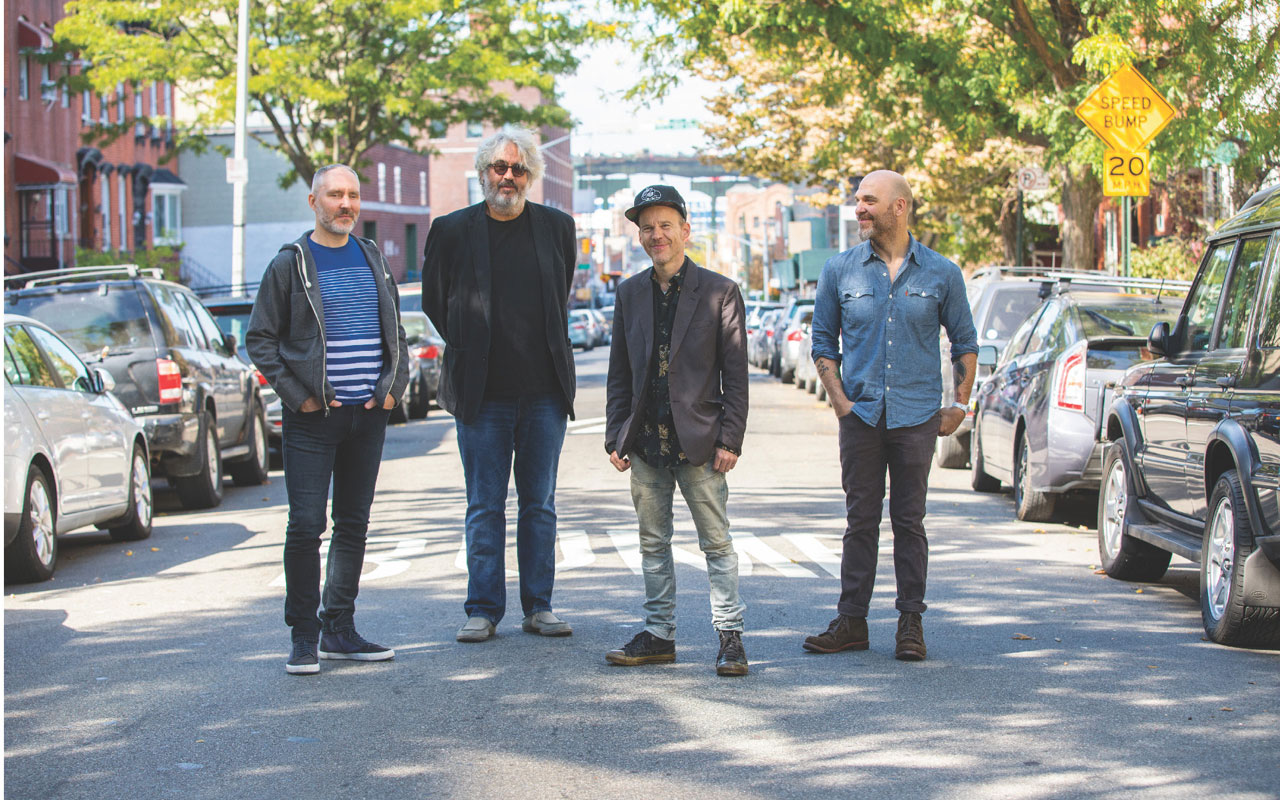
Reid Anderson, Tim Berne, Chris Speed, Dave King photo courtesy of the artist
Saturday, June 16, 7 & 9:30pm
The Royal Room
5000 Rainier Ave S
Presented by Earshot Jazz
The changes that Ornette Coleman brought to jazz 60 years ago were joyful, uplifting ones, but revolutionary—and initially confusing for many.
He confronted tired bebop gestures with an idiosyncratic approach to harmony and chord progression that brought howls from jazz traditionalists who had lost sight of the key component of jazz tradition: innovation.
Still, today, Coleman’s contribution is relatively little appreciated, and even less embraced by the majority of jazz musicians. And the same can be said of the fresh approaches of two other saxophone greats of the 1960s and beyond, Dewey Redman and Julius Hemphill. Like Coleman, those two innovators were from the South, and were steeped in the blues bars and the churches of that region: their yelps and laments and hollers.
It was all too much for even some of the most keen-eared leaders of the day, Miles Davis among them. But others, such as Modern Jazz Quartet visionary John Lewis, were alert to what motivated Coleman and others. So, too, are the New York-based members of Broken Shadows: Tim Berne, Chris Speed, Reid Anderson and Dave King.
Significantly, they have named their group for a 1971 Ornette Coleman album that was recorded at the same sessions as the acclaimed Science Fiction (although not released until 1982), and that featured Dewey Redman (1931–2006). Broken Shadows was a pivotal moment in Coleman’s career—a summation of his earlier acoustic albums, and a signal of his turn towards a larger-ensemble future with a full commitment to his “harmolodics” approach, with his Prime Time band.
Like Coleman (1930–2015), Julius Hemphill (1938–1995) was from Fort Worth, Texas, and he followed a related path in music. He moved to St. Louis, co-founded the Black Artists’ Group, and then went on to New York during the flourishing of the so-called “free jazz” movement. Beginning with albums like Dogon A.D. in 1972 and Coon Bid’ness (1975), Hemphill made his points, both musical and political.
In New York, his students included alto saxophonist Tim Berne, one of the two horn players in Broken Shadows. Berne, “a saxophonist and composer of granite conviction” (New York Times), like Hemphill proved highly gifted in composition. The Guardian called his first release with his early quartet Snakeoil “an object lesson in balancing composition, improvisation, and the tonal resources of an acoustic band.” Many Berne releases, in a wide variety of band settings, have followed. He has long been a pivotal figure in New York, bringing together players from across the spectrum of new approaches to jazz and related music. As the New York Times put it: “Few musicians working in or around jazz over the last 30 years have developed an idiomatic signature more distinctive than Tim Berne.”
Broken Shadows’ other horn player is Seattle-raised saxophonist and clarinetist Chris Speed, “one of the principal figures in a dynamic left-of-center jazz/improv scene in the city” (NY Times). In bands like Endangered Blood, Human Feel, Chris Speed Trio, yeah NO, and Pachora, as well as the influential Alas No Axis with Jim Black and John Hollenbeck’s Claudia Quintet, he has long been a major contributor to the shape of jazz today.
Assuring Broken Shadows a rock-solid foundation are two members of the popular-beyond-jazz-circles Bad Plus, bassist Reid Anderson and drummer Dave King. In addition to the prominence both have achieved with that world-touring trio, King and Anderson have been increasingly active in other contexts. King was, for example, in town for an Earshot presentation in April with the Chris Speed Trio.
He and Anderson drive a Broken Shadows that critic Bradley Bambarger has described particularly well: “Wound through [its] DNA…are the age-old sounds of back-alley bars and carnival midways, funeral processions and holiday parades, the rave-ups of Saturday night shading into the hymns of Sunday morning.” Berne, Speed, Anderson, and King achieve “a rocking, roughhewn harmonic convergence wholly in keeping with the source materials, even as their improvisations have a searching, burning modernism of their own.”
–Peter Monaghan
Tickets $18 adults, $16 Earshot members/senior citizens, $10 students/military. Tickets and more info at earshot.org.
Note: Tickets do not guarantee seating during shows at the Royal Room. To guarantee a good seat, make a dinner reservation at reservations@theroyalroomseattle.com. The Royal Room is an all-ages venue until 10pm.